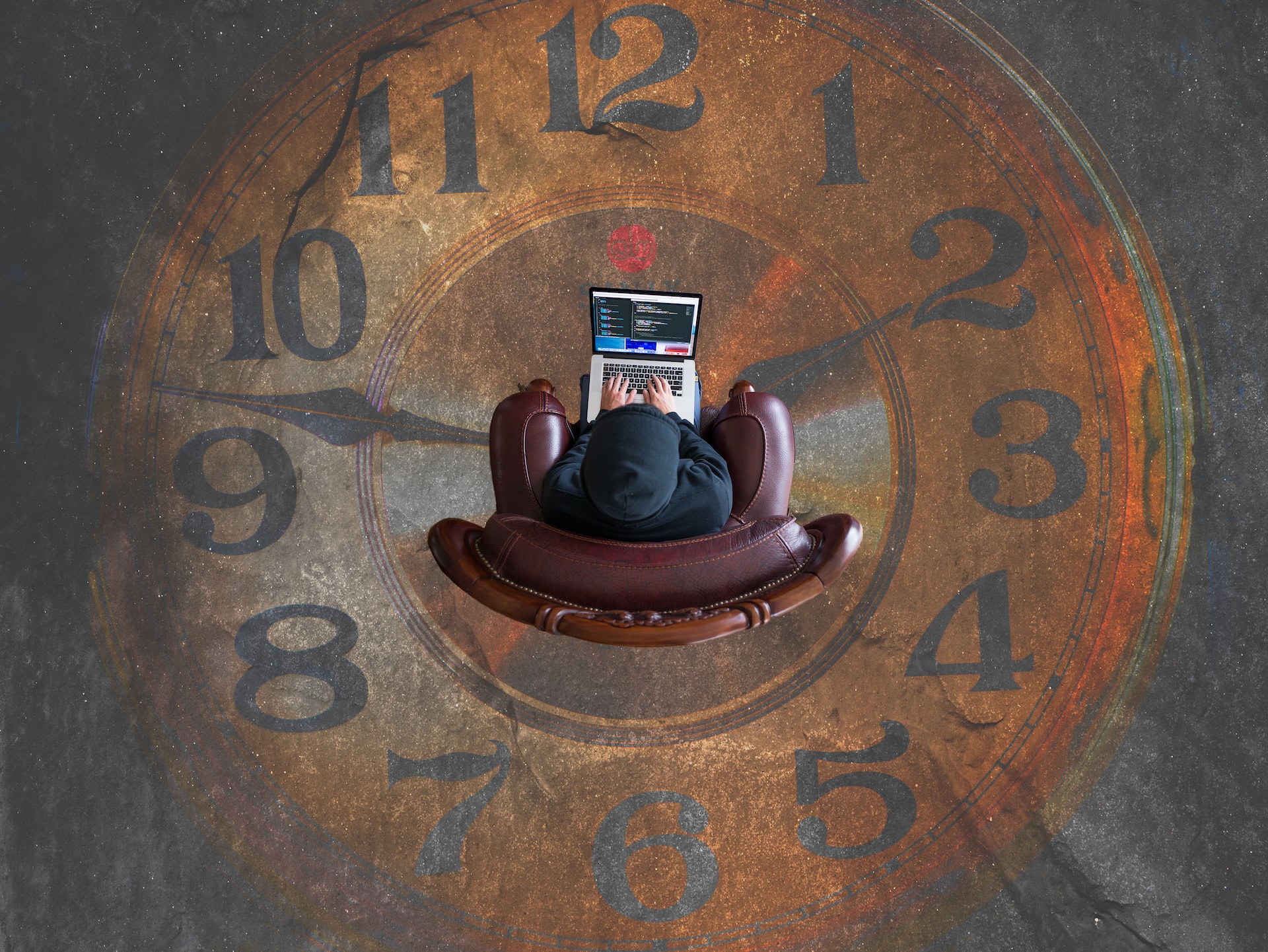Have you received a letter from enforcement agents regarding payment and are worried about them seizing your possessions? If so, the idea of them visiting your home may concern you and your family.
It is a fact that more than 850,000 Brits have reported having a negative encounter with bailiffs. It is important to note that bailiffs have the authority to lawfully enter your property and take items such as electronics and jewellery.
No matter how hopeless the situation may seem, there is a solution to prevent bailiff action. Continue reading to learn how you can stop bailiffs from accessing your property and even avoid their visits altogether, which includes getting your debts written off.
What's Included?
What is a bailiff?
A bailiff is a person authorised by the courts to collect outstanding debts. If you fail to pay immediately, they will typically come to your home or business and attempt to reclaim your possessions, including household goods, business assets, and vehicles. Subsequently, they will put these possessions up for auction to recover the owed money.
Bailiffs Scotland
Please note that the information in this article only pertains to England and Wales. Laws and regulations regarding bailiffs and the court service in Scotland are different.
Who do bailiffs work for?
Bailiffs can be court officials or work for bailiff companies and are also known as enforcement agents. Examples of bailiffs include:
- county court bailiffs
- family court bailiffs
- certificated enforcement agents
- high court bailiffs
- civilian enforcement officers.
Bailiffs work under varying criteria and have different sets of rights. Despite being primarily responsible for collecting payments or taking back items, they may also visit you for other purposes, such as serving court summons or delivering documents.
Will a bailiff come into my house?
Fortunately, before the bailiffs can visit you, they must send you a ‘notice of enforcement’ letter, which should arrive 7 days before their visit. If it has been less than 7 days since you received the letter, we recommend that you get in touch with Credibble for prompt assistance. You may be able to prevent their visits.
If you don’t act, bailiffs will likely come to your home.
How can Credibble help me?
Dealing with debt can be overwhelming, especially when debt collectors or bailiffs are involved. Don’t panic! The Credibble Team is here to help. We can help you to stop proceedings and reduce the cost of your debt for free.
We offer a unique debt solution service partnered with Equifax, a world leader in providing consumer credit report data. This means we have instant access to all your major debt without you having to search through your paperwork. Furthermore, we’re supported by the Natwest Accelerator Programme for business and have a multiyear relationship with the organisation. Our extensive and unique personal finance knowledge goes far beyond debt solutions – so you can trust that you are in safe hands.
What Can Bailiffs Take From Me?
You might be worried about the safety of your belongings. To put your mind at ease, it’s important to know which items bailiffs are legally allowed to take and which ones they aren’t.
- Bailiffs are authorised to seize non-essential luxury items, such as televisions, gaming consoles, jewellery, and vehicles.
However, it is important to note that they are not allowed to take essential living items such as clothing, cooking appliances (e.g. cookers, microwaves, fridges or freezers), work tools and equipment valued at £1350 or less, and belongings that belong to other people (for which proof is usually required).
Can a bailiff take my car?
Bailiffs may attempt to seize your car, but only if it is parked on your property. If you are aware that a bailiff will be coming to your property, relocate your vehicle beforehand to prevent it from being repossessed.
Can a bailiff take items from my home which aren’t mine?
If a bailiff attempts to seize items that belong to someone else, like your partner’s computer, they are not allowed to do so. However, you must provide satisfactory evidence that these belongings are not yours to prevent the bailiff from taking them.
Can a bailiff enter my home if I am not there?
Bailiffs cannot enter your home if you are not there unless they find an unlocked door. However, this rule does not apply if they are trying to recover criminal debt. Additionally, there are other legal conditions that bailiffs must follow. The following are situations where bailiffs cannot enter your home:
- By using force, such as pushing past you (note: there are exceptions to this rule).
- If only children under 16 are present.
- If only vulnerable people, such as the elderly or individuals with disabilities, are present.
- Between the hours of 9 pm and 6 am.
- Through any entry point other than the door, such as windows.
Can bailiffs force entry into my home?
Generally, bailiffs do not forcibly enter your property unless it is a last option. However, if there are court orders to be enforced, bailiffs are authorized to enter, and you may incur additional charges. In some cases, this occurs with bailiffs collecting unpaid council tax.
Normally, when a bailiff visits your home for the first time, they will enter and list the possessions they intend to take control of, otherwise known as seizing.
How many times can a bailiff visit?
A bailiff should not visit your house more than 3 times to collect a debt.
1st visit: a note of your seizable assets is taken (a list of the items they wish to claim as repayment)
2nd visit: to collect the debt
3rd visit: a repeat visit if the debt cannot be collected
The number could increase if you’re not at the property for any of these visits. After these visits, further legal action will be pursued.
According to debt collection rules, a bailiff can only visit your house up to three times to collect a debt.
1st visit: During the first visit, they will record a list of items they may seize as repayment.
2nd visit: The second visit is for collecting the debt.
3rd visit: The third visit is just a repeat of the second if the debt still cannot be collected. However, the number of holidays may increase if you are absent at any of these visits.
Further legal action may be taken if the debt remains unpaid after these visits.
Do bailiffs work on weekends?
It is common for enforcement agents to work on weekends, which they consider a suitable time because debtors are often at their property during that time. However, it’s important to note that visits won’t happen on a Sunday or if a Saturday falls on a Bank Holiday, such as Christmas Day.
Can bailiffs enter my parents’ home?
If your parents’ address was registered as the address of the credit account when the debt was taken out, and the debt collector has a court order (warrant) to enter the property, then yes, they are authorised to enter your parents’ house.
How to stop bailiffs?
It’s understandable to feel worried about a bailiff taking away your possessions from your home due to debt collection. This can cause stress and anxiety for many people. But remember, you’re not alone in this situation. We recommend that you contact us right away for free debt advice. We can provide you with bailiff help, advice on dealing with bailiffs, and information about your legal rights when it comes to bailiffs. If a bailiff does arrive, here are some tips on handling the situation appropriately.
How to Identify a bailiff?
When someone comes to your house, politely ask for appropriate identification as proof of their identity. We recommend checking for three key pieces of information if a bailiff shows up:
- Their ID badge or certificate from their enforcement agency (all bailiffs should hold a certificate)
- A telephone number from their company – you can check by calling them.
- They hold a detailed written breakdown of the money you are claimed to owe.
If someone cannot provide proper identification, instruct them to leave and avoid further interaction. If they refuse to leave, contact the authorities. Even if a bailiff can verify their identity, it is recommended that you do not allow them into your residence unless you can settle your debts immediately.
Can a bailiff refuse a payment plan?
To stop visits, the best approach is to settle any debts that are still outstanding. Please proceed with prompt payment and request a receipt as proof if you can. However, we understand that this may not always be a simple task.
Creditors may not accept partial repayment, even if you can make some payment. Even if you are willing to make payment arrangements, they might demand full compensation or repossession.
Bailiffs indeed have the right to reject a payment plan if the creditor only instructs them to collect the full amount owed. This is because they are representatives of the creditor and do not have the authority to accept payment plans that do not meet the lender’s requirements. If a bailiff demands full payment for a debt, you have two options: pay the full amount or negotiate a formal arrangement that includes the entire debt, including any additional fees.
Simply put, if you ca unable to pay bailiffs, you must have a debt proposal such as an IVA or bankruptcy in place.
We Can Help – How to Beat the Bailiffs!
To summarise, when you receive a notice of enforcement, you must take action within 7 days to prevent bailiffs from visiting your home or business. After that, the bailiffs can legally visit you within the next 12 months. It’s crucial to act quickly if you’ve received this notice or have already seen it. What actions can you take?
If you cannot make full payment or agree to an informal repayment plan, you should consider formal repayment plans instead of avoiding payment altogether. While an offer to pay might be helpful sometimes, it may not be sufficient.
Although it may seem difficult, entering into an Individual Voluntary Arrangement (IVA) can prevent future enforcement visits and even allow for a significant portion of your debt to be written off in the long term.
What is an IVA?
An IVA is a debt-help solution allowing you to repay your debt through a legal agreement with your creditors (the people you owe money to). As part of the IVA, you’ll make a low monthly payment for 5 years (60 months). In return, your creditors will write off any remaining balances at the end of the 5 years.
An IVA can benefit you in the following ways:
- You can become completely debt-free and have your debt written off.
- Your creditors will not be allowed to contact you, thus stopping all visits.
- You can make one low payment.
- Your house and car will be protected.
- There will be no stigma of bankruptcy.
- You can keep your pension.
- All debt, interest and charges will stop.
For more information on IVAs read ‘Everything You Need to Know Before Taking Out an IVA‘.
Frequently Asked Questions
How do I stop a bailiff from coming?
To stop bailiffs, you can:
- Prevent bailiff involvement by clearing your debt or agreeing to a payment plan before employing enforcement agents.
- Make an application to the court to stop the bailiff’s action.
- Make an offer to the bailiff to repay the debt over some time.
- Vulnerable individuals may be exempt from certain fees and can prevent bailiffs from repossessing goods. Your local CAB or an advice agency can advise you on how to proceed.
Can you physically stop a bailiff?
You cannot physically stop a bailiff from entering your home if they have a warrant and are there to collect unpaid criminal fines, tax or VAT debts, or if they are enforcing a High Court writ. However, you can stop them from entering your home if they are there for any other reason.
Can bailiffs enter your home if you are not there?
Bailiffs can enter your home if you are not there but cannot use force to gain entry. They can only enter through an unlocked door or window or by being let in by someone who lives there.
Can police stop bailiffs?
The police cannot stop bailiffs from enforcing a warrant, but they can intervene if there is a breach of the peace.
Can bailiffs track you down?
Bailiffs can track you down using various methods, such as tracing agents, credit reference agencies, and social media.
What happens if I don’t answer the door to bailiffs?
If you don’t answer the door to bailiffs, they may try to gain entry through an unlocked door or window or by being let in by someone who lives there. If they cannot gain access, they may return later.
What will bailiffs do if you have nothing?
If you have nothing for bailiffs to take, they may leave empty-handed but may return later if they believe you have acquired assets that can be seized.
Can bailiffs check your bank account?
Bailiffs cannot check your bank account without your permission but can apply for a court order that allows them to do so.
Can bailiffs take my mobile phone?
Bailiffs cannot take your mobile phone as it is essential for daily life.
Can bailiffs look through windows?
Bailiffs cannot look through windows, but they can look through open doors and windows.
Can bailiffs look in drawers?
Bailiffs cannot look in drawers unless they have been given permission by the occupant of the property or have obtained a warrant that allows them to do so.






